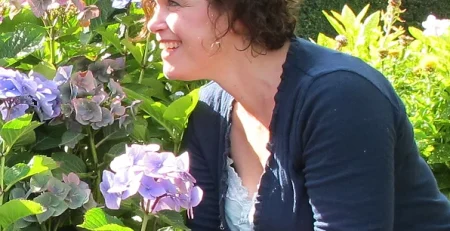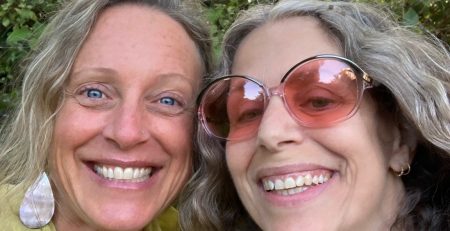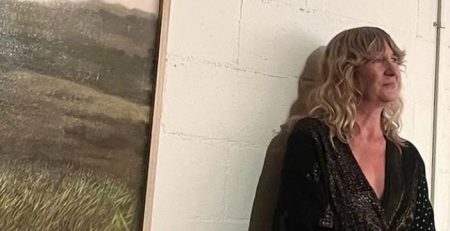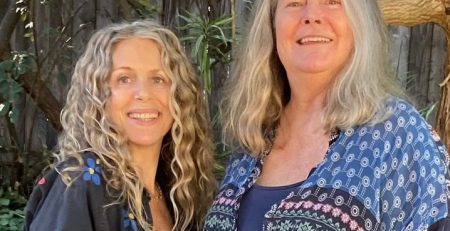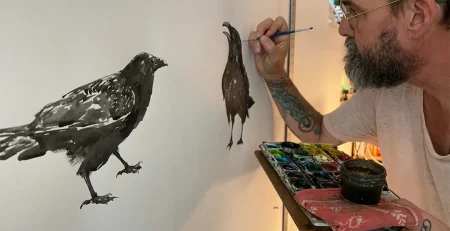Telling Your Story With Passion
Without being able to put words on the page and telling your story with passion, most of us would be lost in a seething mess of jumbled thoughts swirling around relentlessly. For me personally, as I write, the letters line up neatly like dutiful soldiers, ready to fight the battles of my mind. The paper, once a strong tree, holds my deepest secrets. The journal, a safe haven, allows me to be as I am. No right, no wrong. I don’t have to worry about offending anyone by crassness or judgment. This is where I can say what I feel without wondering, “Is it OK?” The pen illuminates a healing force of creativity without shame or guilt.
Telling Your Story With Passion…
“There is no greater agony than bearing an untold story inside you.”
~ Maya Angelou, I Know Why the Caged Bird Sings
Ellen Bass, co-author of The Courage To Heal, has guided thousands of survivors of child sexual abuse to heal through the art of writing, offering 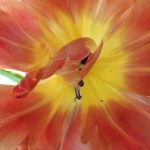 some practical thoughts on moving through writer’s block. She said, “Once you’ve got your tush in the chair, the next step is to get words on the page. Sometimes (and for some people) this is easy. But if this is where you get stuck, there’s an almost sure-fire solution.”
some practical thoughts on moving through writer’s block. She said, “Once you’ve got your tush in the chair, the next step is to get words on the page. Sometimes (and for some people) this is easy. But if this is where you get stuck, there’s an almost sure-fire solution.”
She continued by saying “Called stream of consciousness writing, free writing, or writing without stopping, this is an exercise that has many names and many variations, but the basic idea is that you establish a specified period of time during which you will write without stopping. It can be anywhere from ten minutes to an hour or two (if you’re just beginning you may want to keep it on the shorter side). Then, from the time you begin until the time you end, you simply keep putting the words down onto the page.”
“Writing is an important avenue for healing because it gives you the opportunity to define your own reality.”
~ Ellen Bass, The Courage to Heal: A Guide for Women Survivors of Child Sexual Abuse
Pure Words Come Deep Within
Through a commitment to this practice to telling your story, we go deeper into our true nature and are able to heal the invisible pain inside. This is an exercise in self-reflection; to bring about a deeper understanding of our needs, our passions and our challenges. One might know where their challenges lie, but expressing them through the written word is a magical experience of knowing beyond thoughts. By allowing your feelings to stream from your heart, the pure words come from deep within and the truths emerge. You see things a bit more clearly. You know yourself a bit more intimately, and become empowered by telling your story. Therefore, you are able to liberate the suffering and create a healing narrative.
“I can shake off everything as I write; my sorrows disappear, my courage is reborn.”
~ Anne Frank
Writing is Good for the Soul – Telling Your Story is Key
 “We should write because it is human nature to write. Writing claims our world. It makes it directly and specifically our own. We should write because humans are spiritual beings and writing is a powerful form of prayer and meditation, connecting us both to our own insights and to a higher and deeper level of inner guidance. We should write because writing brings clarity and passion to the act of living. Writing is sensual, experiential, grounding. We should write because writing is good for the soul. We should write because writing yields us a body of work, a felt path through the world we live in. We should write, above all, because we are writers, whether we call ourselves that or not.”
“We should write because it is human nature to write. Writing claims our world. It makes it directly and specifically our own. We should write because humans are spiritual beings and writing is a powerful form of prayer and meditation, connecting us both to our own insights and to a higher and deeper level of inner guidance. We should write because writing brings clarity and passion to the act of living. Writing is sensual, experiential, grounding. We should write because writing is good for the soul. We should write because writing yields us a body of work, a felt path through the world we live in. We should write, above all, because we are writers, whether we call ourselves that or not.”
~ Julia Cameron, The Right to Write: An Invitation and Initiation into the Writing Life
Make Your Story a Gift
“Finally, I was ready to write out my own story. The process was often difficult—I felt vulnerable and exposed. But I was held by my spiritual practices, by the healing work I had done, by the stories that had been shared with me, and by the support of my husband. I wrote my story so that it was large enough to contain both the pain and the happiness, the violence and the sense of safety, which I had feared I would never recover when I first began consciously to remember my trauma. And when I was done, I felt as if a great weight had been lifted. I no longer needed to carry my story in the same way; the page could carry it. I felt lighter in my body and in my heart. I had more freedom, more energy, more creativity.”
~ Nadia Colburn, Make Your Story a Gift
“Narrative is radical, creating us at the very moment it is being created.”
~ Toni Morrison, The Nobel Lecture In Literature, 1993
Seeing the Window to Your Soul
The other part of engaging in a healing narrative is reflecting on your writings and observing the patterns and insights which shed light on your emotions. I like to revisit what I’ve written in my journals on the monthly full moon. A window into my soul it is sometimes shocking, sometimes comforting, but always the truth. Write in ink so it cannot be erased. Tell your story without fear, screaming loudly or whispering softly onto the pages. Weeping for lost loves, laughing at ecstasies felt, sitting in stillness when no words appear. Then, a spark! One word, one phrase brings me closer to wholeness. Suddenly, it all seems to make sense. Stacks of journals, a library of inner wisdom authored by the spirit guide me toward a more complete sense of being.
“The reason for evil in the world is that people are not able to tell their stories.”
~ C.G. Jung


